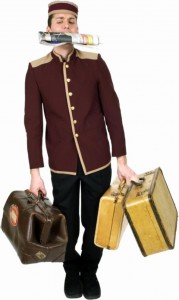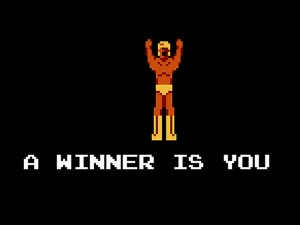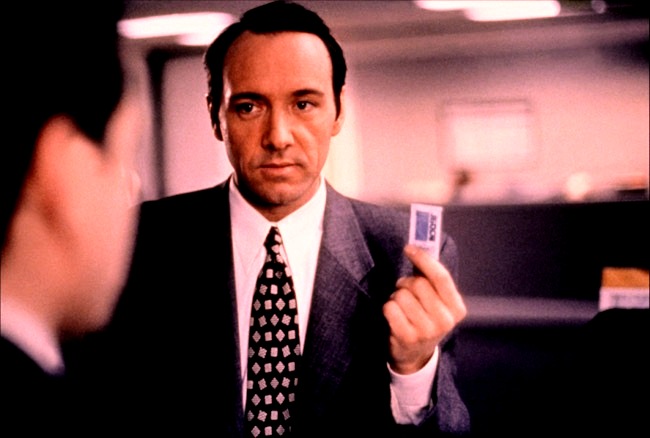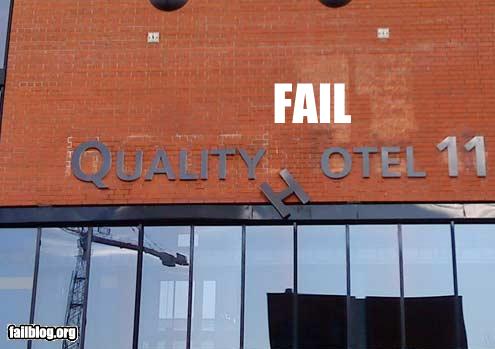I think it’s time to realize we can not readily energize a fan base for something like a hotel, and the real way these “Best of the City” local contests are *truly* won is with your staff.  Consider what it’s like to receive endless credit card offers in the mail, or to have someone call you multiple times and talk only of themselves.  Trying to urge your fan base to do work for you might only not work, it might be counterproductive.  Those who will vote for you on the best-of list are already prone to do it, so they don’t need encouragement.  That means you might be spamming your precious contact list, instead of proselytizing them to action.
So… how are you going to win these “best-of” lists? Â It will happen when you understand the future of social media in hotels – and when you understand that PR & Marketing need synch with all operations, including departments they may not always interact with. Â In this post, we will consider how the future of PR & Marketing will (and should) fit into the world of Human Resources.
To start – let’s chat about the Academy Awards. An apt analogy (This is where you begin to “sip off the firehose”, as Robert Cole perfectly put it) –
The Academy Awards have something called “rank choice voting”. Â What that means is that it isn’t just “whoever has the most votes”. Â It’s a system where you can vote for your favorites, but you can also vote down movies you hate. Â Prior to two years ago, it was normal voting. Â A very good example of why normal voting doesn’t work is the year that The English Patient beat out Fargo, in 1996. Â History has judged Fargo to be one of the most brilliant cinematic narratives of all time, perfectly accomplished, while the English Patient is a grand, sweeping, love story that is somewhat derivative, not that well written, and a movie that was produced by “demographic targeting” – trying to appeal to specific audiences by using specific conventions to maximize profit. Â I mean no offense to anyone that enjoyed the latter film, but the reason it won that year was for a couple reasons:
1) Many members of the academy didn’t go to college, and many didn’t finish high school. Â The Academy’s insecurity regarding their collective intelligence is such that they will always cowtow to the film that appears “grand”, and will shy away from films that appear “stupid”. Â Fargo’s “verite” accent of the Dakota dialect/accent made it seem less intelligent than it was, so the academy voted for the romantic sob story. Â That is a debatable conlcusion, of course, but it wasn’t even the real reason it lost…
Aaand this is where things get interesting…….
2)Â The real reason English Patient won was because there was no rank choice voting. Â When you tally total votes from Academy Members, you are tallying the votes from anyone and everyone that works in the movie industry. More often than not, a huge, sweeping film, shot in multiple locations requires a GIGANTIC staff, and that crew has personal self interest at heart. Â Larger budget films have a larger cast & crew, and they all pine for career advancement & greater success.
The best way to advance one’s career in Hollywood is to win an Academy Award.
IE: The films that have the largest crew used to win because that entire crew would vote for their film, hoping it would help them advance. Â In fact, very often the worst film in the lineup *did* win, because even against their better judgement as “artists”, they simply want their film to win.
This is also why 1998’s Titanic won, vs As Good as it Gets, The Full Monty, LA Confidential, & Good Will Hunting. Â The latter of which were all phenomenal films, the former… not so much. Â But Titanic won, simply because it’s crew was larger than any other crew.
In the last two years, rank choice voting changed the game, and it’s no longer a full tally of all votes. Â You vote for your first choice, and then have a choice to vote for two others. This means you can deliberately leave out the film you find the worst, actively downgrading it. Â It completely changes how the vote is tallied. Â For example, Hurt Locker and The Artist won the last two years…. where it would have undoubtedly been Avatar and (probably) War Horse.
Back to hotels:
All these “Best of the Bay”, “Local Annual Best” lists are *NOT* rank choice voting. Â That’s why a less than stellar chain burrito place beats out the little authentic burrito place, or why a chain sandwich joint can beat out a local deli (in response, many papers have actually created a “no chain” nomination policy, or “independent” and “chain” categories). In lieu of this, it might be wise to consider yourself the large budget film with the huge crew, and engage staff via “HR PR”, and help employees understand how hotel awards will help their respective careers.
Now let’s talk about a hotel’s user base on social media….
It is said that, of the 100% of people socially online, 90% consume content and information without creating content, while 10% are active and participate in social media. Â The other issue is “impressions”, and how few of your fans are online at any given time. Â Even if you have 5000 fans/followers, there could be only a couple hundred “impressions” of people logged in at the right time to see your content. Â Even if 10% of a couple hundred fans/followers see your post, and jump off to another page to “help out” and vote – further login requests, or need to create an account for voting, will further erode participation.
I think social media is going to turn into a new telephone. Â You don’t call your guests every 15 minutes and talk about yourself, but you do answer the phone and answer questions or help with requests. Â Twitter is basically texting in lieu of a direct phone call, so that normal people can connect with a hotel or brand in a quick way, *at the guest’s leisure*. Â Often, people will use twitter to speak to a hotel….. asking if you have rooms for a specific date, or if we are near a certain winery, etc….
Guests text, because it is not only at their leisure, but at their convenience as well. Â That convenience is for them, and certainly not for *US*, because it means we have to be hyperaware and available nearly constantly. Â This is also why I think Twitter will end up as part of the guest services dashboard, so employees will always be staffing our social accounts, 24 hours a day).
So… cial
So social media is about *THEM* (guests) accessing *OUR* hotel brand, and not the other way around. Â We can be delightful, and playful… and post topical, and relevant stuff. Â But for the most part, it’s for a little brand building, and mostly about being available. Think of it as a concierge desk.
That means, however, out of a fan base of nearly 5000, you may get a smattering of people or so to vote for a “best of” list.  What’s more, in theory, asking people to do you a favor could damage the brand and our connection to our clients more than it could help – think of it as overusing your email blast list.
SO WHAT IS THE ANSWER?
Employees of the hotel. Â Employees are the answer!

Of course, we don't expect employees to drop everything. *But* the future is this gent "liking" a post during down time at the belldesk.
I have said this for some time, but I think PR / Marketing needs to cross into HR, and possibly create a streamlined communication style for disseminating all this information about brand, the opportunities, etc.  In fact, I think the next job descriptions should include an agreement that a) employees will not aggressively slander the brand online (complaining about working a back to back on your facebook page is innocuous and fine, but nothing egregious), and b) that employees will actively participate in online social initiatives, helping to bolster the brand and create or add to relevance, both for social impact and search engine optimization.  Now that the semantic web has started (aka a web that isn’t just automatic algorithmic curation, but socially engineered to use human powered clicks to create more meaningful relevance), the power of a single, individual click or post will pale in comparison to the collective curation of 100’s of people.
So, in this sense, it becomes a responsibility of the employee to create their own success, like those self-interested crew members from big budget films, and help the brand/hotel by voting for it whenever and wherever possible. Â This will not only help the hotel, but if we frame it right to the employees, they will understand how it will build equity in their careers — coming from a hotel that won the proverbial “best picture” category will only add to their future salaries and opportunities. Â Asking our guest fan base on social networks to do work for us isn’t necessarily negative, although it has never yielded powerful results (unless it’s a *huge* brand, but the same principles are at work: very few are energized, but with a bigger base they will end up with more interaction).
But again, social media is about EVERYONE ELSE…. and not necessarily about the hotel. Â It’s not what guests can do for us, but what we can do for our guests. Â That, of course, is the model of our business, and it’s as it should be.
THE FUTURE?
So, the future will be a network of extremely connected employees who react to the monthly update of social iniatives, posts, videos, etc, so they can take the few minutes out of their day, and as part of their job, click the “like”, the “plus one”, “thumbs up” buttons, and vote for their annual favorites in the local publications.
Until ranked choice voting happens for these “best of” lists (which it won’t, because the papers know this is basically a hollow marketing effort – and creating further barriers to access will make the voting even less relevant), we are happy to be the big budget film with the largest crew.  Of the overall circulation for these “best of” lists, the amount that participate is paltry, and often the winners, even in major markets, have relatively few votes, and win by less than two or three.

I think we know who the winner is! If you got to this point in the article, it's you... and your hotel.
That’s my two cents. Â I think we look inward at our staff base to propel us forward, and stop relying on the hopes that we can energize guests to click buttons for us. Â Let’s think a little deeper about whether your guests are the type to vote, or if it is your brand’s position to beg at your guests. Â Simply put, it might be low class to pander. Â I am not saying to completely give up on guests for this marketing, but it might behoove us to shift our attention to something we can actually control and manage – the stock of employees that make your hotel go. Â Help them understand that their job changes lives, and has great impact…. and if they help to make the hotel successful in every possible way, their future career will reflect those successes with better opportunities.




No Comments
Be the first to start a conversation